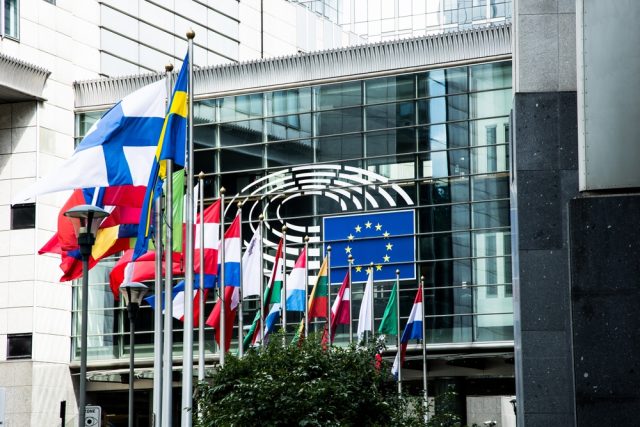
The Polling Europe/SWG survey commissioned by the ECR.
In preparation for the upcoming European elections in June 2024, it is essential to have a strong grasp of the current situation on the continent. This will enable us to provide insightful interventions and proposals to be presented in the electoral programs of the individual national and European parties.
To achieve this, the ECR has taken the initiative to commission the renowned Italian polling agency SWG, specifically its European section Polling Europe, to conduct a comprehensive questionnaire on a few crucial issues. We have received highly informative results that require careful analysis to gain a deeper understanding of the situation.
Migration has been a crucial topic for over 10 years now, and it has increasingly become a decisive factor in distinguishing fields of action. On one hand, there is a European left that advocates for reception and European management of the situation, while on the other hand, a right that aims to delegate management to individual states, placing more stringent requirements for granting permits and subsequently citizenship. When it comes to who should decide migration policies, it is worth noting that 41% of respondents believe that it should be up to the European Commission, 40% believe that it is a prerogative of individual states, and the remaining 19% do not know.
This very polarized picture sees large majorities for one or the other option within the most aligned European groups: S&D (63%), Greens/EFA (58%), RE (52%), and GUE/NGL (51%) the decision must be made by the Commission; for ID (64%) and ECR (58%) it is up to the States. The EPP with 49% believes that it is up to the Commission but it is clear that it is not a univocal position. More particularly, for Italians (61%), Spaniards (59%), and the inhabitants of Southern Europe (58%) migration policies should be managed by the Commission, while for the Visegrad bloc (57% ) and for France (52%) the decision must be taken by the individual states. The paradox is above all Italian, where the main party is FdI (ECR) and more than 60% want a European migration policy. This probably also depends on a desire for a fair redistribution of migrants between European countries, a theme also desired by a large part of the Italian center-right.
Another very particular question is the one which asks whether the European Union should have more or less power than it has today over the member states. Here no response had a large majority, but 37% said that it should have less power, 25% think that it should have more, and 17% think that this arrangement is fine, with 21% of people who do not agree they are expressed or they don’t know it.
In this case, Italy presents a paradox. The group that shows the most hostility towards the excessive power of the European Union is the European Conservatives and Reformists (ECR), with 63% of respondents among conservatives indicating that they want to reduce the powers of the EU. However, Italy is precisely the country where giving more power to the EU has had the best result, with 43% of respondents in favor of it. The Social Democrats turned out to be the most pro-European group, with 40% of respondents in favor of the EU. On the other hand, Eastern Europe shows the strongest Euroscepticism, with 48% of respondents against the EU.
The survey closes with the question of which majority is preferred between the two most plausible ones, i.e. the “wide” one with PPE-RE-S&D or the “partisan” one with PPE-ECR-ID. The “Ursula majority” is preferred by 40% of respondents, while the center-right one stops at 28% with 32% abstentions in this regard. The left-wing parties are more in favor of a large majority (S&D 78%, GUE/NGL 63%, Greens/ALE 58%, RE 50%) while the three centre-right parties are more in favor of an organic majority (ECR 68%, ID 62%, PPE 46%). Also in this case, Southern Europe represents a paradox given that Italy, Spain, and Greece prefer by the majority (even if not large, between 50 and 51%) a broad-minded leadership, even if Spain is the country where there ‘it is the climate most favorable to a center-right majority (31%). In this case, it will be necessary to encourage work on the Visegrad Bloc, given that 40% of Eastern Europeans responded that they do not know which majority they prefer.
Uniting the Visegrad countries, Nations with strong and effective center-right governance (including Italy, Greece, and Sweden), nations with powerful center-right parties such as Spain, and countries that share a common approach to immigration management, like France, is the key to creating a new history for Europe. Although the process of unification involves complex differences, it is a necessary step toward realizing a shared vision for a stronger, more prosperous, and united Europe.



 Subscribe
Subscribe